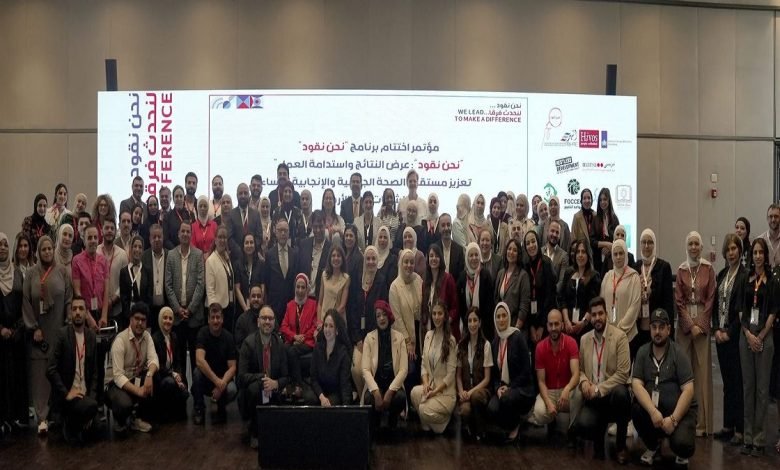
Jordan Daily – A conference held in Amman on Tuesday called for expanding partnerships between government bodies and civil society organizations to ensure the sustainability of sexual and reproductive health services for women and girls, with a focus on those most at risk.
The two-day conference, titled “Moving Forward – From Achievement to Sustainability,” was organized by the Arab Network for Civic Education (ANHRE) in partnership with national institutions and civil society organizations. It marked the conclusion of the “We Lead” program, which ran from 2021 to 2025.
The program is implemented by a consortium led by Hivos, along with FCAM, FEMNET, Marsa, Positive Vibes, and Restless Development and funded by the Dutch Ministry of Foreign Affairs as part of SRHR Partnership Fund.
Participants reviewed key achievements of the program in raising awareness, improving service quality, building capacities, and advancing community-led advocacy by women and girls.
The conference emphasized the need for effective strategies and sustainable financing mechanisms through multi-stakeholder partnerships, including the private sector, donors, and youth groups, as well as integrating sexual and reproductive health issues into national policies.
Among the recommendations issued were calls to amend family and maternal health regulations, revise the Penal Code to criminalize the removal of the uterus of girls with disabilities without medical justification, and establish a national advisory committee on HIV in Jordan.
The conference also recommended creating a national sign language interpretation center using video communication technology to ensure equitable access for people with hearing disabilities to health and reproductive services.
Participants urged the integration of mental health and psychosocial support into sexual and reproductive health programs, as well as incorporating comprehensive sexual education into school curricula and extracurricular programs, with a focus on adolescents.
Additionally, they called for intensifying digital awareness campaigns to expand access to information and services, particularly for youth and vulnerable populations in remote areas.
The conference highlighted the importance of training health workers and administrative staff on gender- and disability-responsive communication and ensuring free, informed consent for all recipients of health services.
Participants expressed hope that the recommendations would be adopted by relevant stakeholders to ensure the continuity of efforts and achieve tangible, lasting impact in the field of sexual and reproductive health in Jordan.

